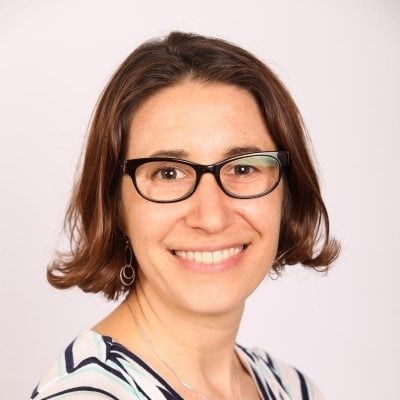I signed up for the Global Circle trip to Ghana with some reluctance. Couldn’t I just write a check to AJWS and take a vacation to Hawaii instead? Or if I wanted to do something for people in need, couldn’t I start somewhere a little closer to home? Who would I be helping by spending money to visit the developing world?
It wasn’t until I spent a week traveling through Ghana, hearing directly from the leaders of AJWS grantees and meeting with members of the Ghanaian community, that I realized why I’d been so wary of visiting. I have a nice life in the United States, and I believe in giving back. I give some money to good causes and volunteer some of my time—more than many people I know. It’s easy to feel like I’m doing everything I should be doing because, quite frankly, the bubble in which I live feels good. It feels comfortable.
But standing outside a school in rural Ghana while dozens of children who can’t afford school fees—or even shoes—watch me jealously as I eat my lunch does not feel good. Seeing a kid wearing soiled underwear and no clothing does not feel good. It feels deeply, fundamentally wrong. There are a lot of words for this feeling: sadness, shame, impotence, humility, rage, frustration. These feelings are generally accompanied by a sudden resolution to heal the world.
What is significant to me is that I now understand why I hesitated to come here. I knew I would be irrevocably changed. I didn’t want to be forced to take on the responsibility of helping to solve these problems. Even with enormous resources, there is no easy way to address a problem as vast as poverty and human rights abuses in one small town in rural Ghana. And what about the rest of the country? What about the rest of Africa or the incalculable rest of the world?
By choosing to stay at home in the US, I would have been sheltered from the injustices I’m now experiencing. The disparities, the malnutrition and hunger I’m witnessing would have existed only as statistics. The levels of disease and human suffering would have felt far-away, not real, or too overwhelming to fully encounter.
For many of us, experiencing injustice upsets the happy balance of our lives. In Ghana, I have been presented with complex problems that I don’t know how to solve; problems for which I may never find solutions. But I now understand that as a Jew and, more importantly, as a citizen of the world, I am not exempt from trying.
Sarah DiLeo was a participant in Global Circle‘s trip to Ghana.
AJWS’s work in countries and communities changes over time, responding to the evolving needs of partner organizations and the people they serve. To learn where AJWS is supporting activists and social justice movements today, please see Where We Work.

